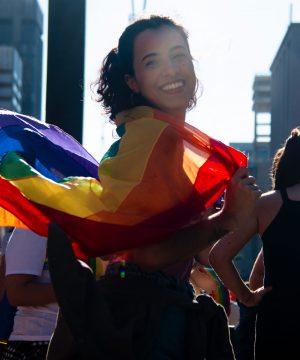CLARIFYING IDENTITY
Many gay, lesbian and bisexual individuals begin their development in a state of confusion. They may not fully understand conflicting expectations and romantic and sexual feelings they are experiencing, or if they understand the feelings, they may not understand how to cope with prejudice and discrimination. In addition, many cultures are inundated with false information about sexuality and GLB experiences. Furthermore, there can be a significant lacking of role-modeling related to being a healthy and self-accepting non-heterosexual person. Individuals may need fully-accepting support while they explore difficult thoughts and feelings around their sexuality and minority stressors, through structured reflection and the review of science-based information.

